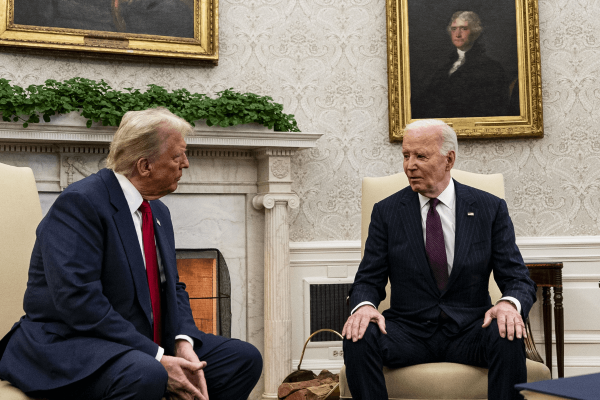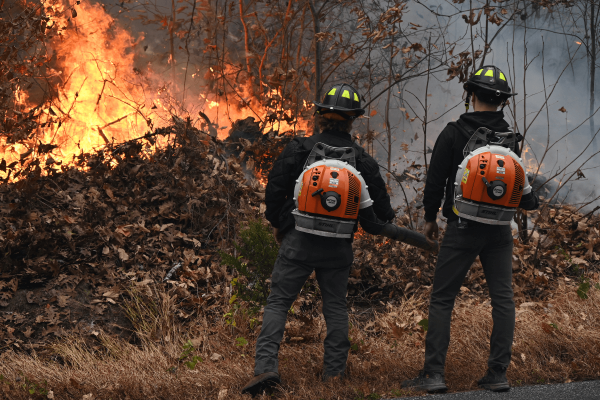I have extended family in Mississippi. I didn’t know this part of the family well growing up. But once I made the connection as a child between the civil rights movement and the fact that Mississippi — a place my grandma once took me to visit — was in the South I became fascinated with them.
Did my aunt make her maid ride in the back seat when she drove her home after her work at my relatives’ house? Where was my uncle (who held a powerful position at the University of Mississippi) and what was he doing while James Meredith was trying integrate “Ole Miss”?
I was never satisfied with the answers I got. Even as a youngster, they struck me as vague and left me unsettled. “Well, it would have been uncomfortable for everyone at that time (including the maid) for a black and white woman to sit together in the front of a car. That doesn’t mean your aunt liked the way things were.” “Well, he didn’t believe segregation was right and did believe everyone should have a good education. He didn’t like the way things were.”
It never occurred to me to ask about church.
So, last spring, when my mom and I were talking about the increasingly volatile national racial climate, I was surprised when she told me that during the civil rights movement one of the beloved patriarchs in this wing of the family had introduced a motion calling on his congregation to de-segregate. My childhood fascination returned.
Why had I never heard this before? How did he do it? Given his status as a respected pillar, was it a dramatic moral reckoning as his community saw the light? Then what happened?
The answers that came felt as vague as those I got in my youngster years. Nothing really happened. The motion failed. And, then my family stayed.
It’s the staying that leaves me most unsettled. My family stayed there in a church that had explicitly said white supremacy was consistent with the gospel. They raised children and some of their grandchildren there. They prayed, took communion, and broke bread with other whites there. They listened to Protestant-length sermons there — sermons ostensibly interpreting and proclaiming the word of God — week in and week out.
I don’t share this story to call out this part of my family — folks I still don’t know very well. I’m not pointing at them as if they were unique and different. They weren’t. In fact, that’s the point. Their response was pretty typical of white Christians then and I share it because it’s remains typical today.
Racist vitriol and violence against communities of color and religious minorities continue to intensify. Self-avowed white supremacists and neo-Nazis have marched and terrorized a city, viciously beating protestors — even killing one. The president and his administration are terrorizing Latinx communities daily. Their means range from pardoning a man who bragged about holding racially profiled arrestees in concentration camp-like conditions to ending DACA. An 8-year-old boy was nearly lynched in New Hampshire this week.
Make no mistake. There will be more of all of this and in all of our communities. The fact that the Muslim ban announcement feels today like it was announced ages ago is merely evidence that white supremacist Christian nationalism is taking up more and more bandwidth in the public square. With each passing week we’re becoming saturated.
But with each passing week open questions remain in many predominantly white congregations.
Will my pastor speak explicitly about white supremacist hatred this week? Will my congregation formally denounce white nationalism with clarity and visibility? If we do speak about it, will it only be in carefully worded prayers about love right before our weekly ritual of passing the peace? Or, will there be silence altogether?
The mere fact that such questions exist at all speaks volumes. And, here’s the real question many white Christians face right now. What are we willing to live with in order to stay?
In the unsettling call and response that took place between myself and the adults to whom I asked my childhood questions what was implied was that, of course, my relatives were actually opposed to white supremacy. They just couldn’t do that much about it.
Perhaps no family story belies the truth more obviously than the one about church. That story makes it plain. They may not have liked it, but they weren’t so opposed to white supremacy that they wouldn’t live with it in order to remain part of their community.
It’s easy to look back today on what white Christians did in the 1950s and 1960s and see those days as full of clarion clear crossroads. Surely, if I had lived then, my church’s failure to clear such a low moral hurdle — rejecting segregated church — would have been a crossroads for me. Surely, I would have made a scene like Jesus in the Temple, and left.
But, what happened in your church the Sunday after Charlottesville? What happened the week after DACA was rescinded? Was the gospel spoken? Or was there silence?
Maybe our congregations and pastors are silent or talk about Charlottesville and DACA only in carefully worded prayers because of have an ill-conceived notion that somehow these are political or partisan matters. Such matters are always difficult to navigate in church.
But make no mistake. None of this is about politics or partisanship.
We are in a battle over whose lives matter and whose lives do not in this country. We are embroiled in a soul struggle over who is part of our community and who is considered disposable. This is about whether we actually believe in human rights and dignity in the face of civic hatred, hostility and violence against black people and Latinx people (and Muslims, Jews, LGBT people and women of many different races, religions, and orientations).
It’s about all of us being all hands-on deck in a struggle for our lives and for our future as a nation. If white Christians aren’t there, where are we?
Last week in Creston, Iowa (less than 100 miles from where I live) five high school students posed in hoods, beside a burning cross and a Confederate flag (one holding a weapon). My friend, and fellow Iowa clergyperson, Anna Blaedel wrote: “hey iowans: if your church talks about the Iowa / Iowa State [football] game tomorrow but doesn't talk about what happened in Creston, your church is siding with masculinist white supremacy.”
Blaedel’s right. What’s being said or not in our churches this week (and next) is the precise moral measure of what we are actually preaching in our churches.
It’s also the case that where we spend our time, how we hold our bodies, what we pray — aloud and in silence, week in and week out, shapes us in the deepest of ways. It shapes our children.
So, again, the real question, the deepest question, here is this: will we stay? Will we remain in congregations where, week after week, the strongest fortitude a pastor or folks in the pews can muster shows up as a cautious prayer?
If you went to church after Charlottesville, DACA, or the latest racial violence in your community, and were disappointed your pastor didn't speak, then it's time for you to act. Sitting and not liking what’s going on matters as much now as it did to stay in a segregated church back then. It’s time for you to find others in the congregation who are also disappointed. It’s time for you to go to your pastor and other leaders in the church. It’s time to insist he/she begin to speak justice — gospel — from the pulpit. (Pastors, it’s time for you to find those in your congregation who will stand with you as you do the same.)
But we must not equivocate. If action is unsuccessful, if silence and cautious prayers remain the norm, it’s time to leave.
It’s time to leave your church.
A church that is silent today and in the coming weeks and months is a church beholden to white supremacy. A church silent today is a church increasingly tolerating the grip of a white Christian nationalism that is, indeed, taking up more and more bandwidth in our bodies, souls and minds.
Silence is speech. Silence is the taking of a side. And silence in a so-called sacred space in these times is the opposite of holy.
We are at a crossroads now. And it is time to go.
Got something to say about what you're reading? We value your feedback!







